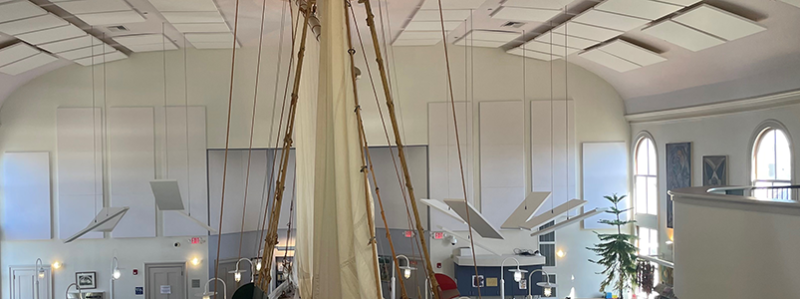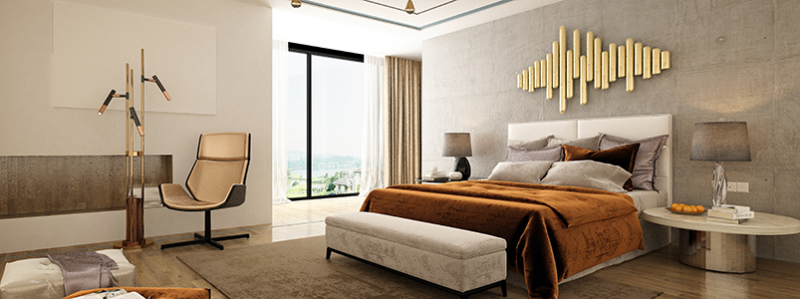
Top 8 Benefits of Good Acoustic Design
In today’s fast-paced world, where noise pollution poses a growing concern, the significance of optimal acoustic design cannot be overstated. Whether it’s an office, school, concert hall, or personal living space, harnessing the benefits of sound optimization offers a myriad of advantages. In this article, we will explore eight key benefits derived from implementing optimal acoustic design, shedding light on how it enhances different environments.
1. Crystal-Clear Communication
One of the primary advantages of optimal acoustic design is its ability to enhance speech clarity. Whether in classrooms, conference rooms, or auditoriums, effective communication relies on clear and intelligible speech. A well-designed acoustic environment minimizes echoes and disruptive background noise, ensuring that every word is easily understood. This fosters productive interactions, facilitates learning, and promotes effective teamwork.
2. Heightened Focus and Productivity
Unwanted noise distractions can significantly impede productivity and concentration levels in workplaces. Optimal acoustic design creates a peaceful atmosphere, reducing the negative impact of noise on employees. By minimizing external disturbances and controlling sound reflections within a space, individuals can better focus on their tasks, resulting in improved efficiency and overall job satisfaction.
3. Acoustic Design Enhances Learning Environments
In educational settings, optimal acoustic design plays a pivotal role in shaping students’ learning experiences. Studies reveal that poor classroom acoustics can hinder comprehension and academic performance. On the other hand, optimized acoustics facilitate effective learning by enabling students to clearly grasp teachers’ instructions, actively engage in discussions, and absorb knowledge more efficiently.
4. Elevating Musical and Artistic Performances
Concert halls, theaters, and performance venues greatly benefit from optimal acoustic design, as it directly impacts sound quality and audience experience. Well-controlled room acoustics enhance the richness, clarity, and depth of musical performances, allowing musicians to showcase their talents while captivating the audience. Similarly, in theaters, it ensures clear dialogue intelligibility and an immersive theatrical experience.
5. Acoustic Design Promotes Health and Well-being
Noise pollution has been linked to various health issues, including stress, anxiety, elevated blood pressure, and sleep disturbances. Optimal design mitigates the adverse effects of noise, promoting better health and well-being. By creating tranquil and serene environments, it contributes to reduced stress levels, improved sleep quality, and enhanced overall comfort.
6. Safeguarding Privacy and Confidentiality
Spaces requiring privacy and confidentiality, such as meeting rooms and medical facilities, rely on optimal design for effective soundproofing. By utilizing sound-absorbing materials and techniques, sensitive conversations remain private and protected from eavesdropping. This fosters an atmosphere of trust, professionalism, and ensures the integrity of confidential discussions.
7. Complying with Building Regulations
Building regulations often encompass specific acoustic performance requirements for different settings. Adhering to these regulations through optimal design prevents legal and regulatory complications. By meeting recommended guidelines, designers and builders create spaces that fulfill necessary acoustic criteria, offering occupants a safe and comfortable environment.
8. Aesthetics and Design Flexibility in an Acoustic Design
Contrary to popular belief, optimal design seamlessly integrates with visually appealing spaces. Advancements in acoustic materials and technologies have allowed designers to incorporate sound-absorbing panels, diffusers, and other elements without compromising aesthetics. This offers design flexibility, enabling the creation of harmonious spaces that are visually pleasing while maintaining acoustic efficiency.
The advantages of optimal acoustic design extend beyond mere noise reduction. From enhancing communication and productivity to promoting effective learning and well-being, the benefits are vast. By integrating acoustic considerations into the design process, architects, engineers, and designers can shape environments that optimize sound quality, foster effective communication, and create spaces that truly resonate with their intended purpose.
-
April 11, 2024
Acoustic Improvements at Provincetown Public Library
-
November 16, 2023
How to Soundproof a Room
-
September 26, 2023
Quieting the Racket: Understanding Pickleball Noise and Effective Solutions




